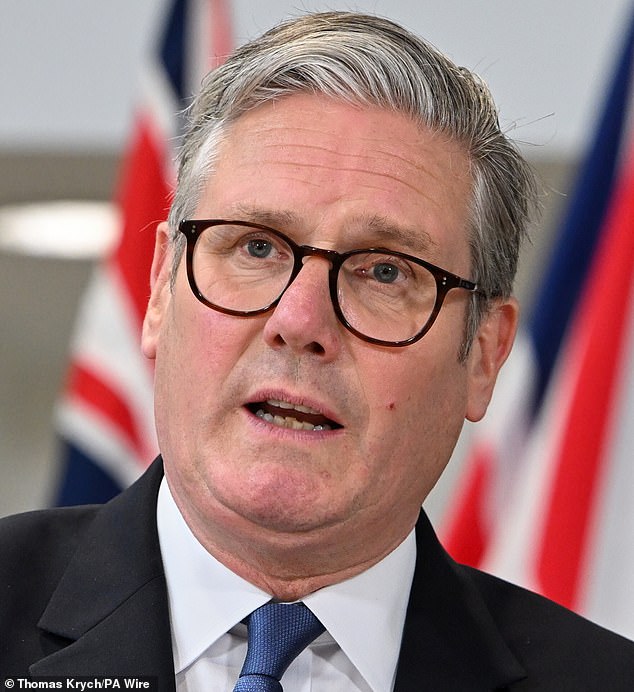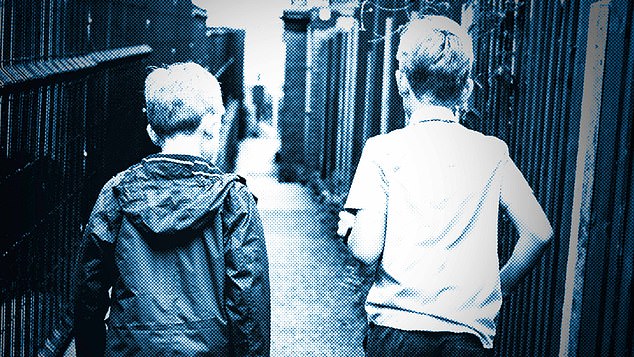Finally. The Labour Party have discovered the British white working class do exist. Or, at least, Education Secretary Bridget Phillipson has.
‘White working-class children, and those with special educational needs, do exceptionally poorly,’ she admits. ‘Put simply, these children have been betrayed, left behind in society’s rear-view mirror.’
The scale of this betrayal is shocking. According to Department for Education figures, fewer than one in five white working-class children obtain Grade 5 or above in GCSE English and maths. Only 21 of England’s 3,400 schools manage to secure average levels of attainment for their white working-class pupils. As Phillipson rightly identifies: ‘They are children whose interests too many politicians have simply discarded.’
That’s politicians of all political persuasions. The figures are a damning indictment of the last Tory government, and the complacent narrative that educational standards rose on their watch.
The reality is that after Michael Gove – the one Conservative Minister who did take the fight to the education establishment ‘blob’ – was sacked, working-class children were again consigned to the academic scrapheap.
But the complicity extends much further. Tony Blair‘s commitment to make ‘Education, Education, Education’ his priority turned out to be just another of his administration’s lies.
After a decade of Labour in power, only 42 per cent of pupils left compulsory education with the much vaunted ‘five good GCSEs’. One in five children left primary school unable to read or write properly. Truancy rates, which Blair pledged to cut by a third, saw no significant change.
So Phillipson’s commitment to establish a specific task-force to address what is nothing less than a form of de-facto educational apartheid is welcome.

Sir Keir Starmer has been attempting to understand, and confront, the accelerating political insurgency of Nigel Farage, writes Dan Hodges
Though what is even more significant is that she is prepared to use the words ‘white working class’ at all.
Keir Starmer has been attempting to understand, and confront, the accelerating political insurgency of Nigel Farage. His Education Secretary’s figures provide the answer. It’s being fuelled by Labour’s complete abandonment of its historic mission to speak for, and promote, the British working classes.
In his speech on Monday, Reform’s leader issued a challenge. ‘I’ve got an idea… why don’t the Prime Minister and I go to a working men’s club in the Red Wall, and members can sit there and ask us questions,’ he goaded.
‘That’s my open invitation… let’s go to one of the former mining communities, somewhere Labour has held since the 1980s.’
Sir Keir will not accept that invitation because he knows the opinions that would be proffered were he to venture into one of his party’s former working-class bastions would collide like a juggernaut with his own vision and values.
He would hear how much of working-class Britain doesn’t believe immigration is in danger of turning us into an island of strangers, but did so decades ago.
His opinion that a man can have a cervix would be met with open ridicule. The longing he has for the rarefied air of Davos would invite suspicion, if not outright contempt.
And, to be fair to the Prime Minister, that estrangement would not be entirely his fault. He is, after all, the leader of the Labour Party. And that party, and wider movement, turned its back on working-class Britain decades ago.
When I was working for the GMB trade union, I went to Downing Street in the run-up to the 2001 election. I explained to one of Blair’s senior advisers how disillusioned a lot of ordinary trade unionists were becoming with the policies – and demeanour – of his government.
‘That’s OK,’ I was told, ‘they haven’t got anywhere else to go.’
They do now. In fact, over the past few years they’ve embarked on a veritable package tour of differing political destinations. Vote Leave in 2016. Boris in 2019. Reform in 2025.

Exam results have suffered under Labour and the Tories, with fewer than one in five white working-class children obtaining Grade 5 or above in GCSE English and maths
So Labour’s belated recognition that the working class still exists, and is now voting in its droves for its opponents, is obviously motivated by electoral self-interest.
Bridget Phillipson’s early upbringing in a half-heated council house in Washington, Tyne and Wear, primarily shaped her views on educational inequality. But in truth, the cynicism behind her party’s attempt to re-engage with its old working-class constituency isn’t relevant.
What matters is will Keir Starmer be prepared to finally do what is necessary to properly speak, and govern for, working Britain?
Since the General Election, some of Sir Keir’s critics have attempted to claim that his government represents a regression to the old-fashioned class warfare of the past. But that’s to completely misunderstand the current Labour Party.
Under Blair’s ‘modernisation’ the working class became anathema to Labour. With the result that over the past couple of decades Labour politicians have been merely cosplaying as tribunes of the workers.
For most ministers and shadow ministers, class solidarity involved a lusty rendition of the Red Flag at conference, a couple of hours spent at the Durham Miners’ Gala, then a night on the champers at Soho House.

Bridget Phillipson’s early upbringing in a half-heated council house in Washington, Tyne and Wear, shaped her views on educational inequality
Any attempt to articulate the genuine views of working people on issues such as immigration, law and order, patriotism or national security – with their strong streak of small ‘c’ conservatism – would be shouted down with the charge, ‘you’re just patronising and caricaturing working people’.
So does Starmer really mean it? Is Phillipson’s intervention just a gesture? Or is the Prime Minister serious about re-engaging with Labour’s lost heartlands?
It shouldn’t take long to find out. Hard policies aimed at neutralising the liberal lawyers, de-weaponising the European Convention on Human Rights and stopping the small boats. Active ministerial championing of the Supreme Court ruling on trans rights. A national rape-gang inquiry. A genuine effort to root out regional inequality, build an industrial strategy and offer an alternative to the economic hunger games of globalisation.
Bridget Phillipson believes working-class children are being left behind in society’s rear-view mirror. But the entire British working class has been left behind.
Whether Keir Starmer can place them in the driving seat will determine the fate of his party, and his government.












